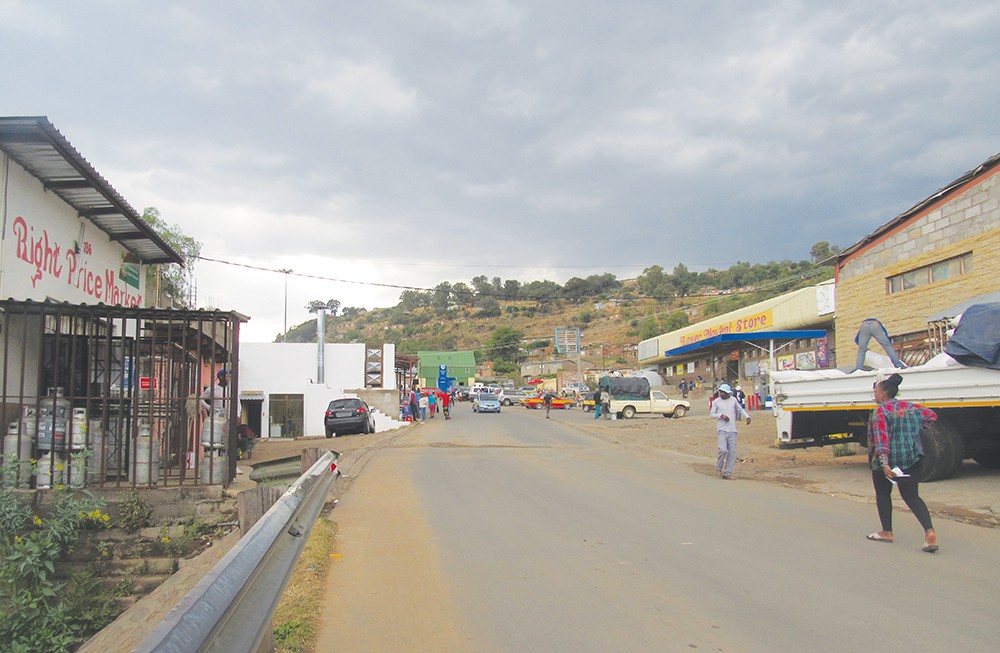By Neo Kolane
The residents of Upper Moyeni in the Quthing district, about 176 km from the Maseru city, are left in the dark at night as streets lights remain unlit.
On behalf of the chief of Moyeni, Makoebetane Pomela told theReporter that the darkness caused by the streetlights which are not functional leads to criminality as the dwellers remain fearful of lack of safety.
Pomela said the street lights do not serve their purpose as they have been dysfunctional for many months.
He revealed that the community members have to fork out money from their pockets to restore power especially during festive season.
“The community members buy units from their own pockets in order to minimise acts of criminality by lighting the streets,” Pomela said.
He added: “There is an incident where people broke into three shops which are along the main road. The problem does not lie with the Lesotho Electricity Corporation but the urban council under the ministry of local government and chieftainship.”
The council is allocated funds by the central government and is supposed to switch on the lights but nothing has happened., he observed.
He said since they were erected some years ago, they have only been functioning for a few weeks and constantly go unlit.
“We have been making clarion calls on the local authorities to put the lights on the night but the continued power outage has been an order of the day and leaves us in distress,” Pomela said.
A resident of Upper Moyeni, Matlopo Letsie said that after the installation of the street lights, the council was able to buy the electricity units for the streetlights to operate.
“When time went on the council stopped buying the electricity units reasoning that the government does not have money.
“There were committees that were formed to help in the development of the village and amongst them was the street lights.
“The committee realized that during the festive season the acts of criminality rise and opted to install street light as a measure to reduce crime in the area. But the lights regularly go out,” Letsie regretted.
He said the villagers decided to enter into a scheme in which each household contributed M50 to finance the installation.
Letsie said the streets remained lit from December 25 to January 5 and have since regularly been in dysfunctional, resulting in a number of businesses broken into during the night.
The urban councillor of Upper Moyeni, Rantso Mpiti told the publication that the community was aware of the problem engulfing the power outage, commenting that it was the responsibility of the urban council to ensure that the lights are on.
Mpiti said the problem at the centre is the capacity of the local government to allocate funds to buy the electricity units.
“I contacted the ministry of local government and chieftainship affairs in an attempt to resolve the matter but I was informed there was no money to put the lights on as lighting them is highly costly. The minister informed us that the government was preparing to install solar power in the area to keep the streets alight in the night,” he added.
The town clerk of Quthing, Tefo Mofolo told the tabloid last week that it was now two years since the streets light left the residents in the dark during the night.
He could not say how much money was actually needed to put the lights on as there was no specific budgetary allocation meant for street lighting.








